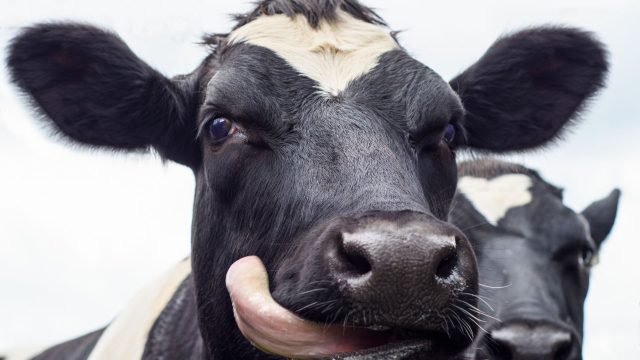07
Sep
Save Organic Dairy, Family Farms and Consumer Support for Organic!

(Beyond Pesticides, September 7, 2021) If regulations concerning “origin of organic livestock” and “access to pasture” seem beyond your comprehension as an organic consumer, think again. Lacking enforcement of strong regulations on these topics, organic dairy is in imminent danger.
Multinational food conglomerate Danone, owner of Horizon Organic, has just sent notice to 89 organic milk producers in Maine, Vermont, New Hampshire and at least three counties (Clinton, Franklin and Saint Lawrence) in New York that it is cancelling their contracts. While this action is devastating to the affected farms and the economies of those states, it has much broader implications.
Why is Danone cancelling contracts as organic milk production in the Northeast is increasing? In Danone’s words, the company “will be supporting new partners that better align with our manufacturing footprint.” Ed Maltby, executive director of the Northeast Organic Dairy Producers, explains this “footprint,” with reference to low cost, ultra-pasteurized milk that is easily transported and warehoused, which has become a staple on the organic shelf. More importantly for the future of organic dairy is the expectation that USDA will promulgate a weak regulation on origin of livestock—that “will allow the massive loophole of being able to sell or transfer transitioned animals as certified organic.” Such a regulation, in combination with the continued failure to enforce rules requiring organic livestock to have access to pasture, makes it profitable to produce “organic” milk in industrial confined animal feeding operations (CAFOs), where cows are fed cheap imported “organic” grain instead of pasture. Organic consumers do not want CAFO [concentrated animal feeding operation] milk, but many will have no other choice without strong regulations.
Letter to USDA Secretary Tom Vilsack and Deputy Administrator, National Organic Program
As an organic consumer, I am very concerned about the future of organic dairy. Multinational food conglomerate Danone, owner of Horizon Organic, has just sent notice to 89 organic milk producers in Maine, Vermont, New Hampshire and at least three counties (Clinton, Franklin and Saint Lawrence) in New York that it is cancelling their contracts. While this action is devastating to the affected farms and the economies of those states, it has much broader implications that affect all organic consumers.
Why is Danone cancelling contracts as organic milk production in the Northeast is increasing? In Danone’s words, the company “will be supporting new partners that better align with our manufacturing footprint.” What is this “footprint”? Low cost, ultra-pasteurized milk that is easily transported and warehoused has become a staple on the organic shelf. That doesn’t live up to my expectations as an organic consumer.
But more importantly for the future of organic dairy is the expectation that USDA will promulgate a weak regulation on origin of livestock—that will allow the massive loophole of being able to sell or transfer transitioned animals as certified organic. Such a regulation, in combination with the continued failure to enforce rules requiring organic livestock to have access to pasture, makes it profitable to produce “organic” milk in industrial concentrated animal feeding operations (CAFOs), where cows are fed cheap imported “organic” grain instead of pasture. Organic consumers do not want CAFO milk, but many of us will have no other choice without strong regulations.
Please do the following:
* Adopt strong regulations governing origin of organic livestock that do not allow transitioned animals to retain their organic certification for milk when they are transferred or sold. The recent loss of Northeast organic dairy family farms can be blamed partly on USDA who created an un-level playing field with its failure to publish the regulation during the last decade.
* Enforce regulations requiring access to pasture. The recent loss of Northeast organic dairy family farms can be blamed partly on USDA, which allows some certifiers to fail to interpret or enforce the access to pasture regulation in their definition of the grazing season.
We pay a premium for organic milk because we want milk from farms that follow strict organic practices. Without strong enforcement, the organic label is a farce and will lose its value in the marketplace.
Thank you.











Organic Dairy products are vitally important to the health and well being of people and animals. The USDA must do everything to protect this segment of agriculture.
September 7th, 2021 at 12:24 pm